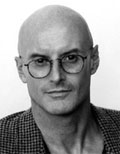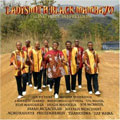 Last weekend, I attended a two-day workshop on Ken Wilber’s integral philosophy. It will take me quite awhile to feed you all the teachings, links, and wonderful contacts I made. The Integral Institute’s teaching crew came in from Boulder, Colorado. They are all experienced practioners of the integral method, as well as thoughtful, seasoned meditators. The workshop was attended by about one hundred people from all walks of life, some of whom had traveled great distances.
Last weekend, I attended a two-day workshop on Ken Wilber’s integral philosophy. It will take me quite awhile to feed you all the teachings, links, and wonderful contacts I made. The Integral Institute’s teaching crew came in from Boulder, Colorado. They are all experienced practioners of the integral method, as well as thoughtful, seasoned meditators. The workshop was attended by about one hundred people from all walks of life, some of whom had traveled great distances.
What does the term “integral” mean? Well, if you apply integral thinking to the world’s religious and spiritual traditions, you would vanquish all religious hostility, all personal preferences for one over another, and you’d look at the religious landscape anew to find what is common, what is helpful, and what works. You would assume that every tradition is “true.” If you were to apply the integral philosophy to medicine, for another example, you would integrate Western symptom-based methods with whole-body healing practices, the traditional with the new. Integral thinking is NOT saying, “Oh, just put a bunch of varied viewpoints into a blender and mash them up!” It’s a method that teaches you how to see your own mind as a kind of multiple personality, and shows you how to attend to all your interior voices, thank them, and then integrate a purposeful world view and peaceful life practice.
The philosophy can be applied to politics, psychotherapy, the arts, business, all things where conflict resides. Like the word “integral” suggests, the method helps people find wholeness through an integrated study of everything available and sustainable. It is “integral” to consider what unites, rather than what divides.
This balanced philosophy touches me deeply, and helps me appreciate myself for being someone who always contained a lot of contradictory ideas and messages as a young girl. Family members would argue and advocate. I would hold many views simultanelously; I’d listen to a debate, feeling frightened and horrified. Everybody’s right! Everybody’s wrong! I was constantly trying to ferret out all the truths, all the theories, every opinion. This quality served me well later on, both as a friend and as a magazine journalist. But it has also left me feeling speechless too often, with so much going on inside.
Perhaps you perceive yourself in a similar way. You can see the need to meditate, the call to meditate, to calm the chattering mind. Even the exercising of the body is different when managed “integrally.” You have three bodies, actually: the gross, the subtle, and the causal, and each needs its own workout! (We’ll address the three bodies at another time.)
At the workshop, we did exercises that helped us understand the disowned parts of ourselves–our “shadows.” We met in groups to process specific difficulties in our lives. We found and owned our own interior voices: “the protector,” “the seeker,” “the follower of the way,” etc.
The teachers and attendees all expressed concern about the polarized world in which we now find ourselves, and yet we were excited by the feeling that much could change. One attendee, who works within the government, said that integral thinkers in Washington have been meeting and wondering if they should call themselves “transpartisan,” so fed up are they with the polarized right and left. “Transpartisan” is a fascinating term I know you’ll hear more about. I think it has legs.
Ken Wilber himself has the clearest head on these subjects, of course, and when I was a producer for Beliefnet.com, I was blessed to be the handler of his articles, which you can read here. If you want to read more, here’s our guide to Wilber’s work.
And have a look at Sounds True’s terrific website for incredibly clear and helpful Ken Wilber products.
For information about upcoming integral conferences in various parts of the country, click here. Ken Wilber puts fascinating audio and video interviews on this site, his most marvelous and flamboyant current effort: IntegralNaked.

